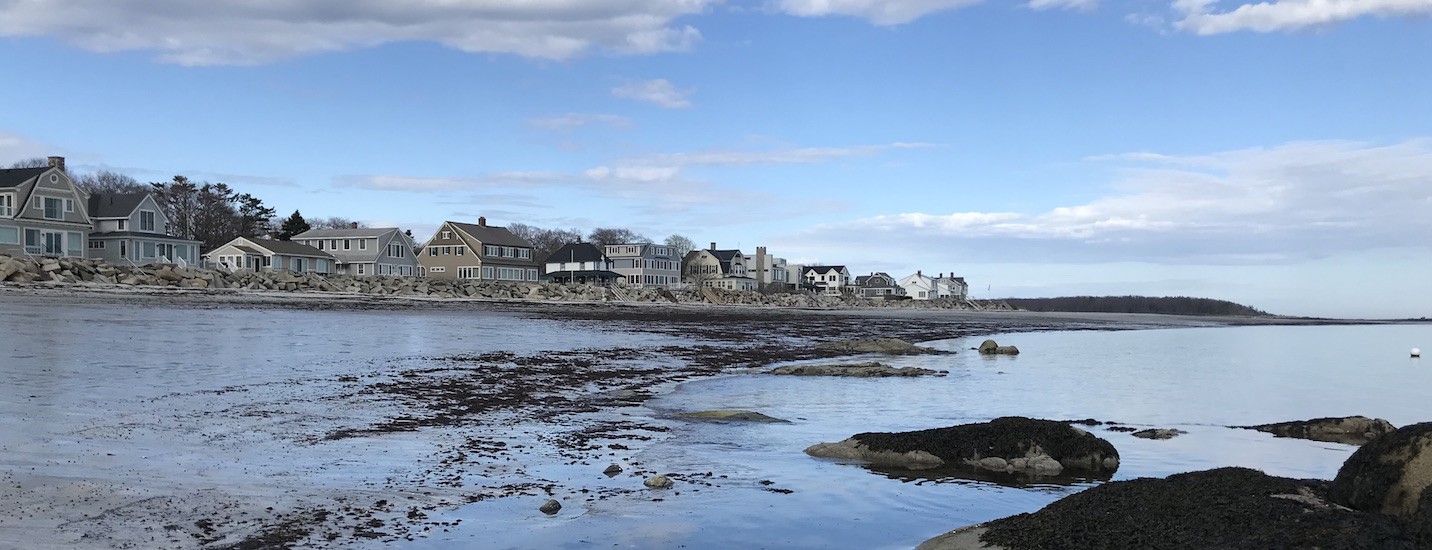
Maine’s highest court has upheld broad public beach access rights at Goose Rock’s Beach, a wide, sandy beach popular with residents and visitors, in Kennebunkport, in southern Maine. Specifically, in a decision issued October 3, the Maine Law Court affirmed the lower trial court’s holding that the Town of Kennebunkport – not beachfront property owners - holds title to the land seaward of the seawall, including the wet and dry sand of the beach, in trust for public use. The Surfrider Foundation has been involved in this case since 2009 in support of the Town of Kennebunkport and public beach access. In a state where less than 10% of the coast is publicly owned, Surfrider’s Maine Chapter is committed to fighting for maximum public beach access rights along Maine’s coast.
On behalf of the Maine Chapter, Surfrider submitted an Appellee’s Brief to the Law Court in February in the case, Robert F. Almeder et al. v. Town of Kennebunkport et al. The Law Court heard arguments in the case in May. The plaintiffs, which included numerous beachfront homeowners at Goose Rocks Beach, initially filed suit in 2009, seeking a court declaration that their parcels include land all the way down to the low water mark. However, the lower court rejected this argument, holding that for all but one of the twenty-three parcels at issue, the owners’ title ends at the “seawall” – located landward of the higher high water line, and that the Town of Kennebunkport owns both the wet and dry sand portions of the beach.
The case involved “a meticulous review of older deeds” and the history of land transactions in the Kennebunkport area, tracing back to the 1600s, as well as issues such as what constitutes a “seawall” as specifically referenced in many of the relevant deeds as the seaward property boundary.
As the Law Court explains, “seawall” refers to an elevated area of land or an embankment situated landward of the beach that, as aptly described by the trial court, is a “physical feature on the face of the earth that acts as a barrier or wall – either man-made or naturally occurring – that acts to impede the flow of the sea.” Essentially, the Law Court concluded that the lower court’s interpretation of the term “seawall” “accords with the word’s use contemporaneous with the drafting of the Beachfront Owners’ foundation deeds, reflects our general descriptions of this monument, and is specifically applied to each individual deed” and, thus, that “the [trial] court did not err in interpreting the term “seawall.” Additionally, the Court notes that “[t]he [trial] court traced the title to each property back to the early 18th century and concluded that the grants extended only to the seawall and could not be altered by calls to the water included in deeds drafted decades or centuries later.”
Additionally, the Law Court agreed with the lower court that the Town owns the beach seaward of the seawall – not the beachfront homeowners. “[…] there is no doubt that the Beachfront Owners in this case have not established ownership of the Beach.” As the Court additionally explains in more detail:
“It is equally clear from the record, the historical context, and the early colonial statutes that title to the disputed portions of the Beach was never transferred into any other private hands. Ownership of the Beach passed from the Crown to the colony of Massachusetts; and then from Massachusetts, through Danforth, to the proprietors […], where it was retained in trust by them for the benefit of the Inhabitants of Cape Porpus. The historical record suggests, as the trial court found, that this property remained in trust for the benefit of the Inhabitants of the Town until the proprietary dissolved in the late eighteenth century.”
While this is a win for locals and visitors to Goose Rocks Beach, Surfrider had advocated for and hoped that the Law Court would take this prime opportunity to extend the trial court’s holding to every other beach in Maine, based on public trust principles and the equal footing doctrine, among other appropriate bases. While the Law Court declined to do so, Surfrider continues to support broad public access rights throughout the state of Maine, and is hopeful that this decision is a step in that direction. As counsel for Surfrider in this case, Adam Steinman, explains, "While the Goose Rocks Beach case may not have broad statewide implications, the grantor to the Town of Kennebunkport was the grantor of land to most of the southern to mid coast of Maine and so this decision will have impact on future access litigation in the region."
